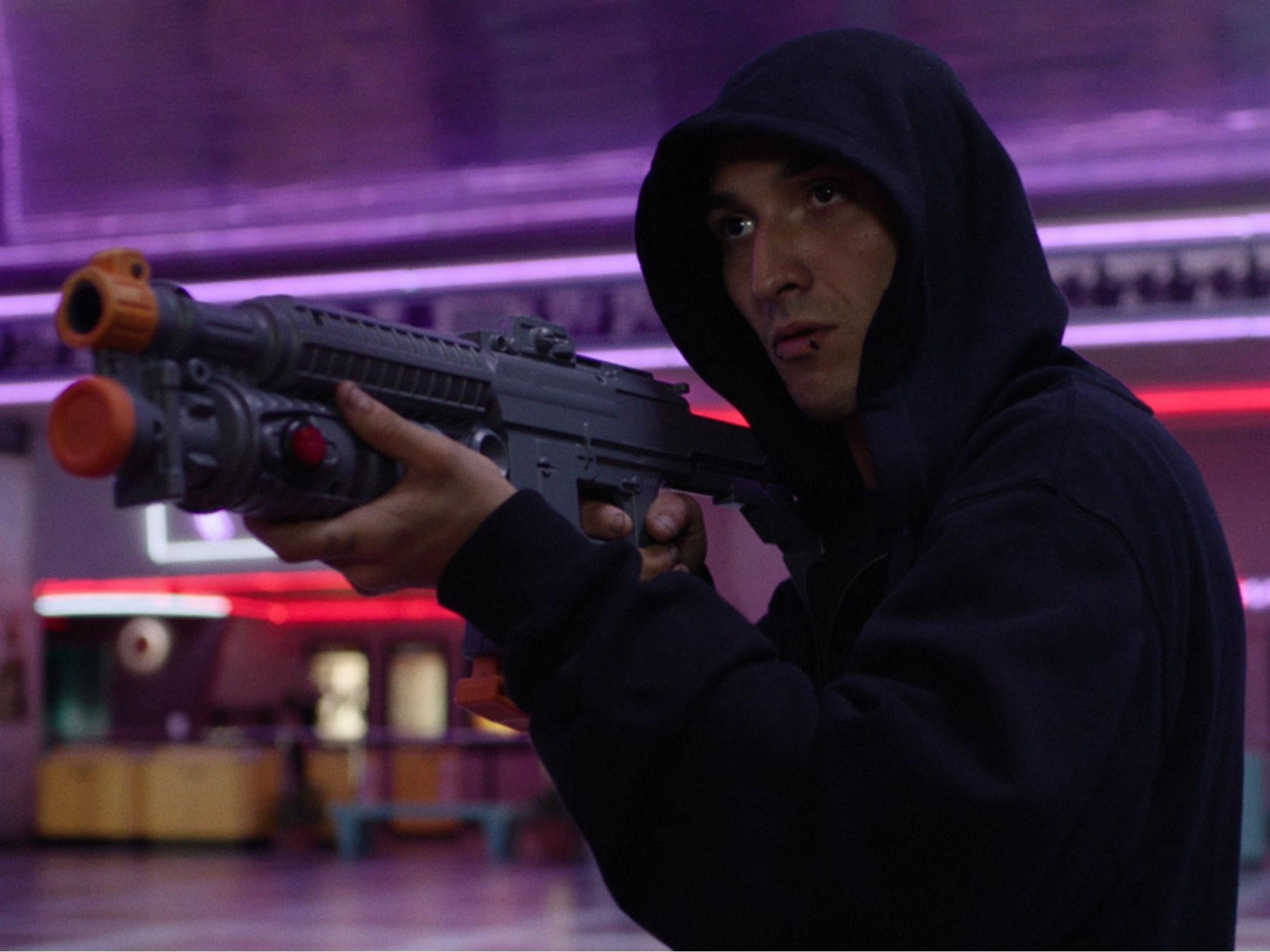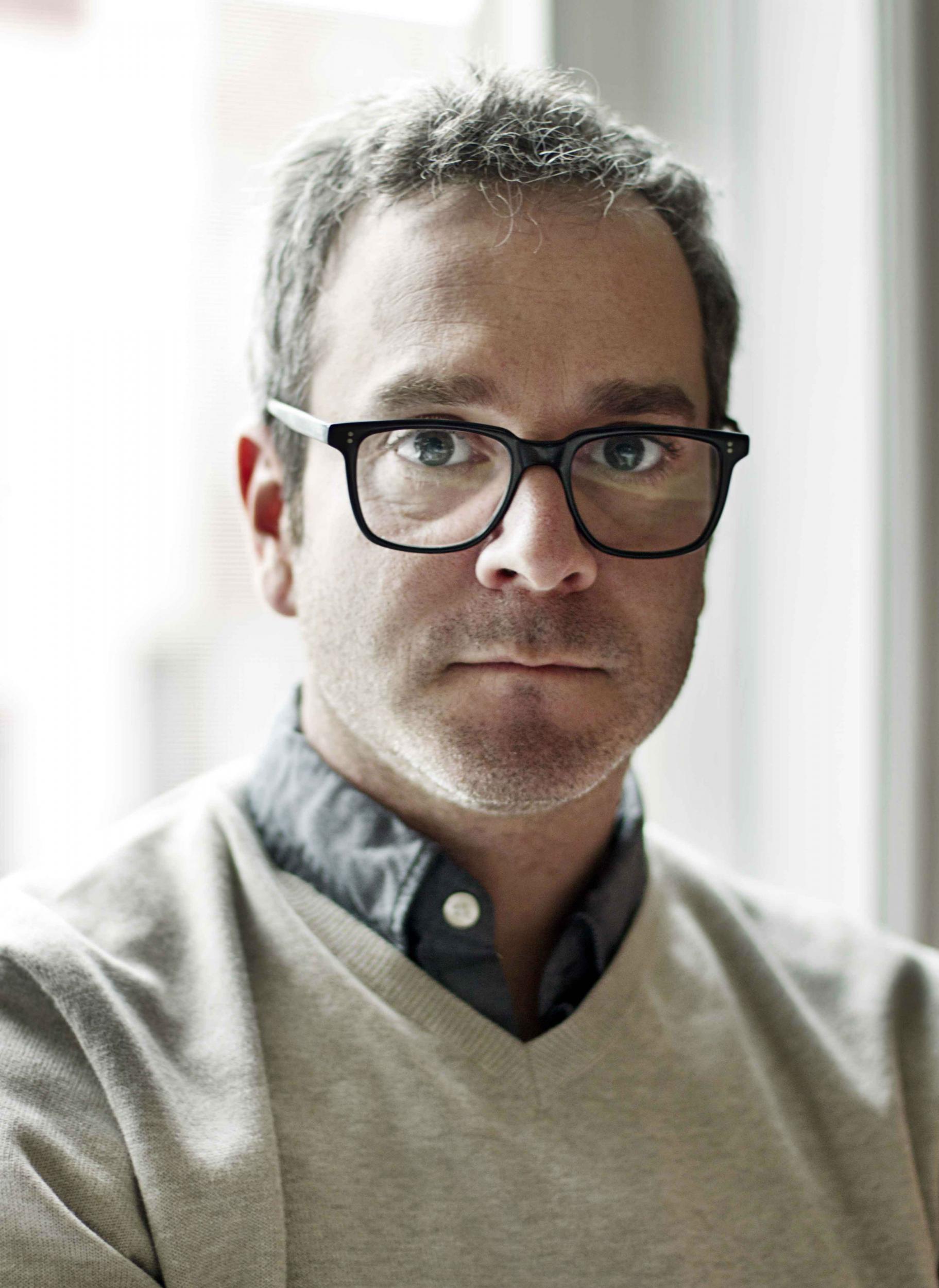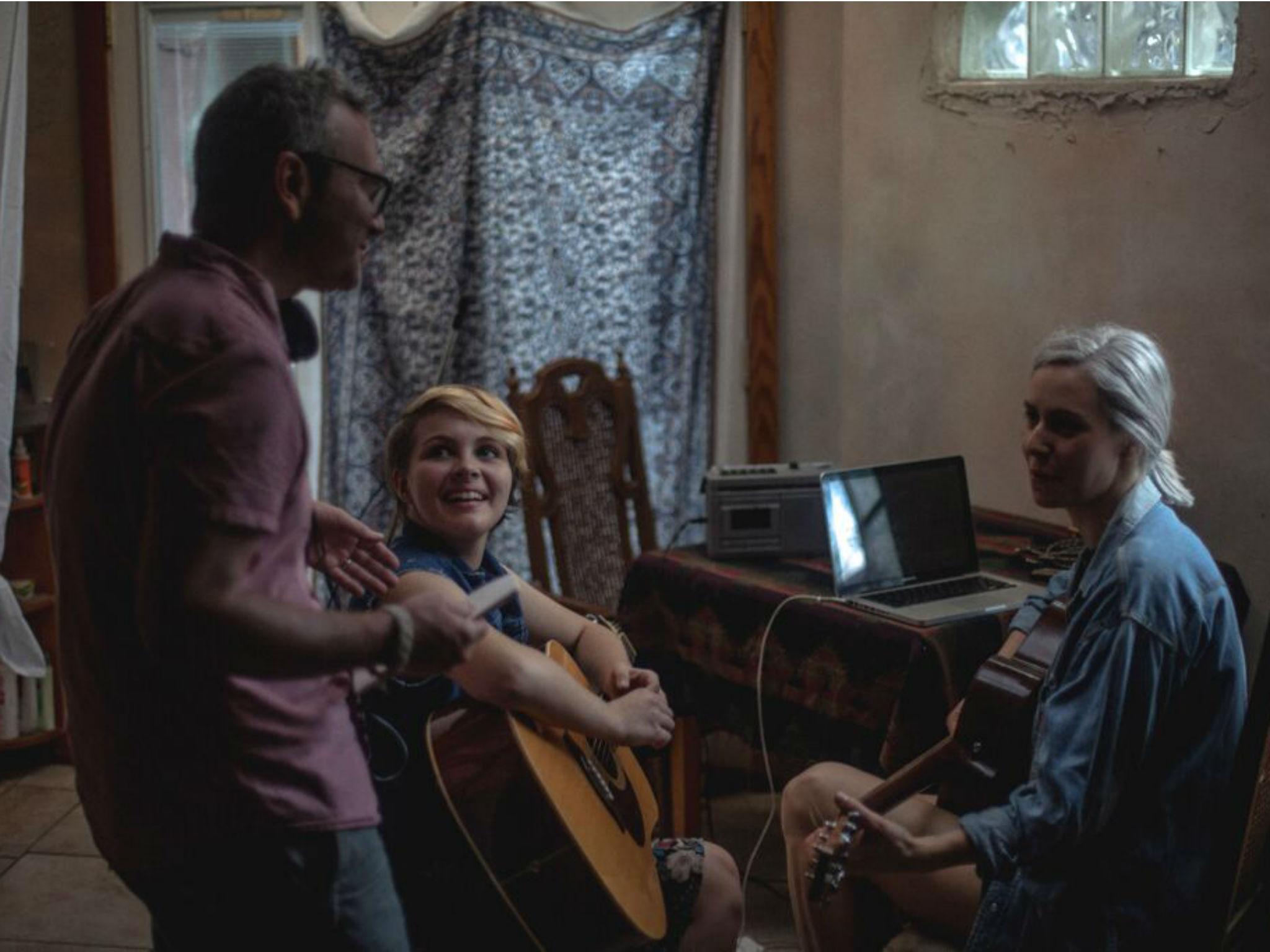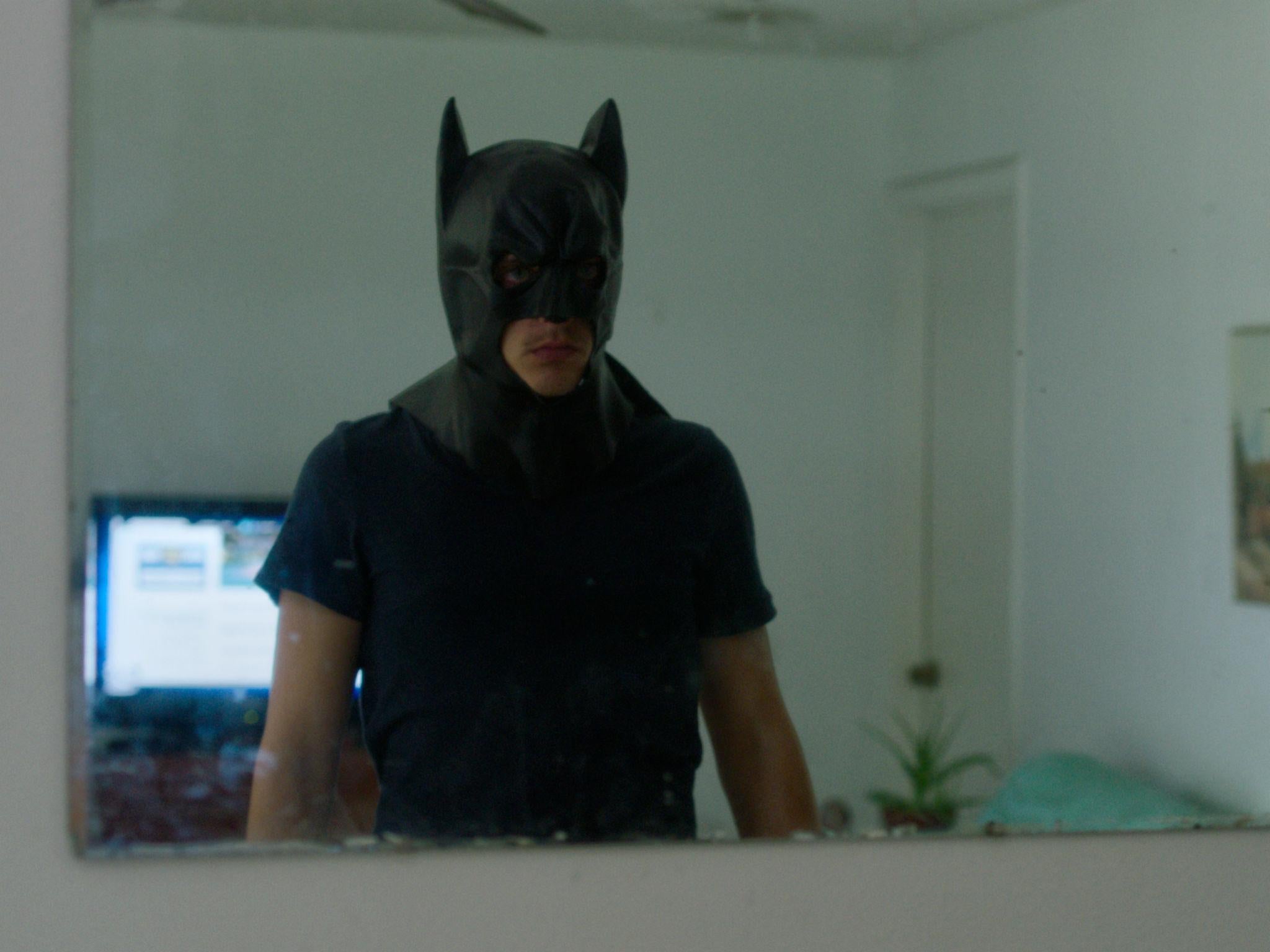Dark Night's Tim Sutton: What I wanted to do was show someone that shouldn’t have access to a gun
The Aurora Massacre-inspired film that subverts Hollywood’s obsession with gun violence was shot in 16 days with non-actors plucked from the streets and without a single scene involving physical violence

Your support helps us to tell the story
From reproductive rights to climate change to Big Tech, The Independent is on the ground when the story is developing. Whether it's investigating the financials of Elon Musk's pro-Trump PAC or producing our latest documentary, 'The A Word', which shines a light on the American women fighting for reproductive rights, we know how important it is to parse out the facts from the messaging.
At such a critical moment in US history, we need reporters on the ground. Your donation allows us to keep sending journalists to speak to both sides of the story.
The Independent is trusted by Americans across the entire political spectrum. And unlike many other quality news outlets, we choose not to lock Americans out of our reporting and analysis with paywalls. We believe quality journalism should be available to everyone, paid for by those who can afford it.
Your support makes all the difference.With his nerve-shredding latest film, director Tim Sutton point blank refuses to give the audience what they want. A film that’s been on the lips of every critic since it bowed at Sundance Film Festival almost 18 months ago, Dark Night is inspired by gun ownership in America, and the effect that it has when weapons fall into the hands of someone with malevolent, lethal intent.
You spend the entirety of its runtime waiting to witness a Hollywood-standard catastrophe that feels as though it could arrive at any moment. “It was very important that you felt as though someone could die in this movie,” Sutton tells me. “There’s something out there. [It’s] always off screen.”
In the real world, that something is as elusive and dangerous as Sutton’s fictional film makes it out to be: a mass shooter, completing his daily routine as he prepares to walk into a movie theatre and mercilessly kill whoever he encounters inside. It instantly draws parallels to the Aurora Massacre in 2012, a tragic event in America’s modern history that saw James Holmes kill 12 people and injured 70 more as they sat in a screening of Christopher Nolan’s The Dark Knight Rises. On that July evening, Holmes snuck into the theatre via a side door and set off gas canisters before launching his attack. Disoriented by the smoke, it’s said that members of the audience began applauding when Holmes arrived, thinking that he was part of the show.

“They had gone to see a caped, violent vigilante defeat bad guys, but what they got was a bizarre version of the reality. I felt like it was the most wicked and yet most American piece of performance art possible,” Sutton says of the pre-planned massacre, “and I knew the industry wasn't going to make a movie about it.”
Although the similarities are striking – a blistering hot summer, the perpetrator’s eery resemblance to Holmes and plenty of references to the Batman franchise – Sutton is quick to clarify that Dark Night isn’t a simple reconstruction of what happened in Colorado that night. His film, he says, portrays a different attack, but judging by the rolling coverage of Holmes’ trial that can be seen on the characters’ TV screens throughout, there’s certainly an element of copycat behaviour involved. It puts forward the long-debated argument regarding the almost exclusively white and male mass shooters of America who have been labelled ‘mentally ill’ rather than terrorists. I asked Sutton how this argument played into the film’s fruition. “What I wanted to do was show someone that shouldn’t have access to a gun,” he says, making it clear that he’s no qualified spokesperson on gun violence’s relationship with mental health. “But at the same time, I wanted to show that everybody has mental health issues… and in America, especially in the suburbs, it’s pulling people apart.”
A masterclass in the art of cinematic suspense, Dark Night not only follows its heinous protagonist, but the movements of strangers whose fates will be banded together for eternity once the moment arrives. We see a struggling veteran, a misunderstood high school kid and a woman experiencing the heavy burden of trying to make a living in a hopeless suburban America. There’s also the perpetrator, but for the first half of the film, Sutton’s killer could, in theory, be any of the characters you’re watching.

“You bring your own prejudice in as an audience member. You see a US veteran that doesn’t get along with his family, who’s in therapy but not talking, and he really loves guns. You might assume that he’s the shooter,” Sutton deliberates. “At the same time, another person sees a troubled teenager with dark journals and a suffocating mother and thinks the same thing. The idea was to make these people recognisable; that it could be your cousin, your college roommate or your uncle. Or, you see yourself.”
It’s a eery and powerful technique that pays off immensely, thanks in part to Sutton's love of working with non-actors. Almost everybody who appears in Dark Night was plucked from obscurity off the streets of Sarasota, the lurid, sun-bleached city that the film was shot in over the course of just 16 days.
While most filmmakers would go out of their way to quench the audience’s shameless thirst for blood and show the massacre of these people in glorious cinematic style, Sutton decided to approach his violent subject matter differently. It may be a film about the very real threat of guns being owned by the wrong people, but Dark Night doesn’t have a single scene involving physical violence.

Watch Apple TV+ free for 7 days
New subscribers only. £8.99/mo. after free trial. Plan auto-renews until cancelled

Watch Apple TV+ free for 7 days
New subscribers only. £8.99/mo. after free trial. Plan auto-renews until cancelled

So why make a film about such an earth-shattering tragedy, one that we already can predict the conclusion of, and not show us its heinous aftermath? “It gives you catharsis,” Sutton argues. “It gives the viewer a reason to say ‘Okay, I can leave the theatre and it’s over’, but with Dark Night, you leave the theatre and the violence is happening inside of you – or ten minutes, or two days from now. It’s our inability to actually deal with the problems that makes the process of this movie harder to deal with, because it’s very clear, the feeling you get when you walk out: you are not free.”
Sutton’s film throws up a number of questions regarding the importance of owning guns in modern America, but he was hellbent on making sure the film’s debated central message was non-partisan. The two sides of the argument, both pro- and anti-gun ownership, are fairly represented, regardless of how its director felt about the issue. From behind the crosshair, we’re shown both a responsible gun owner at a shooting range and a deranged man stalking his ex-girlfriend with a rifle, wandering through the neighbourhoods with the sound of children playing nearby.
So is there any hope that one day films like Dark Night will feel like a far-flung fantasy? A time we’ll look back on from a new perspective in which everybody feels disdain towards the omnipresence of gun violence? Sutton doesn’t think so. “At some point we’ll see people just walking around with guns all the time,” he says with regret, citing the new-found excuse for American’s to “protect one’s self” from empty threats that have been fuelled by Trump’s less than favourable stance on religion and race. “It’s clear that it’s a quagmire,” he tells me. “I don’t want to say it’s hopeless, because I’m not a nihilist, but I do think that with the way things are set up, especially under Trump, progress seems impossible. 30 people could get killed tomorrow in a high school and it wouldn’t change the gun laws.”
While he’s spent months trying to make a film about impactful violence without any of the bloodshed, Sutton’s next project, an adaptation of Frank Bill’s acclaimed novel Donnybrook, might seem like a U-turn in terms of its borderline fantastical treatment of wild, on-screen slaughter. Following a group of down-and-out, jobless people who are lured to an organised gang fight by the $100,000 prize money, Sutton calls his version “an art film for the Red State” that crosses Apocalypse Now and Badlands with his signature, observational style. “The violence will be so extreme that it will become unbearable, but it’s not for entertainment value, it’s to make people run out of the theatre horrified,” he argues. “I’m going to make a film that will make my mother want to disown me!”
Whether or not his all-guns-blazing follow-up to Dark Night will sour the film that preceded it doesn't really matter. Sutton’s made his political stance clear: he’s a staunch opposer of the issues that Dark Night’s central character deals with. He also knows his nuanced style isn’t designed to reach every theatre in the country, nor that it may it wind up changing the wider public’s (or the president’s) mind. “I think Dark Night should be played in every cineplex in America,” he argues defiantly. “When it plays [there], it becomes the scariest movie you will ever see.”
'Dark Night' opens in UK cinemas on 18 August
Join our commenting forum
Join thought-provoking conversations, follow other Independent readers and see their replies
Comments